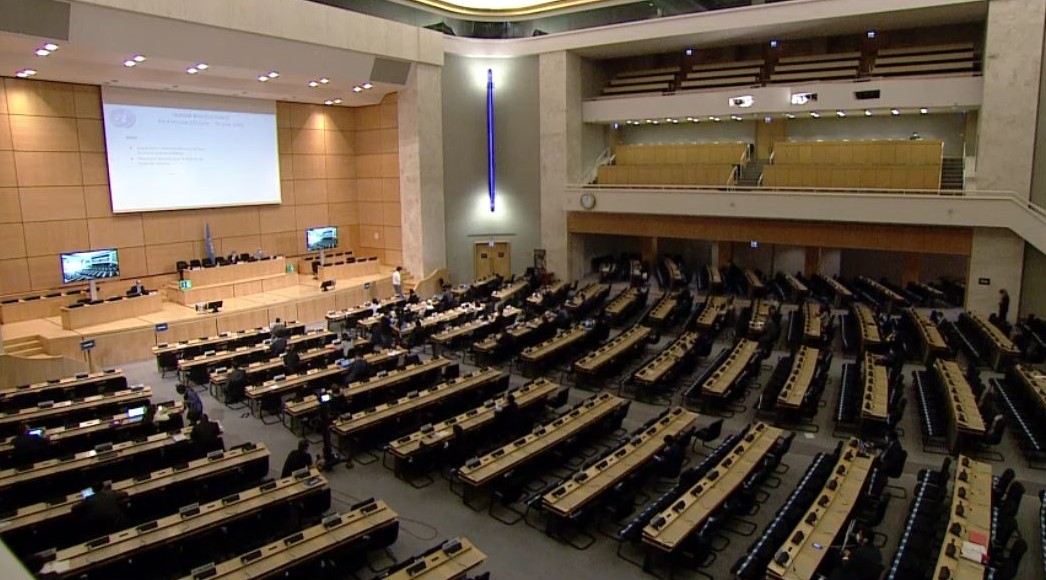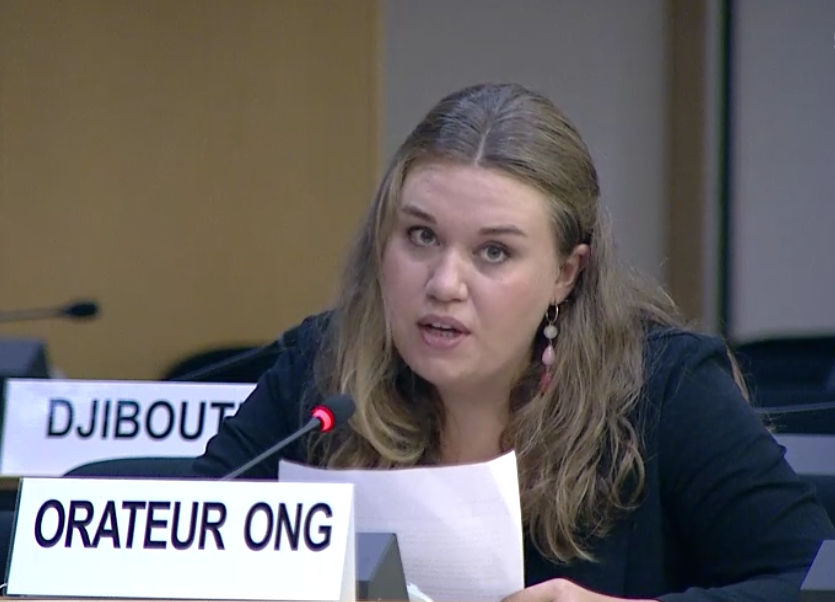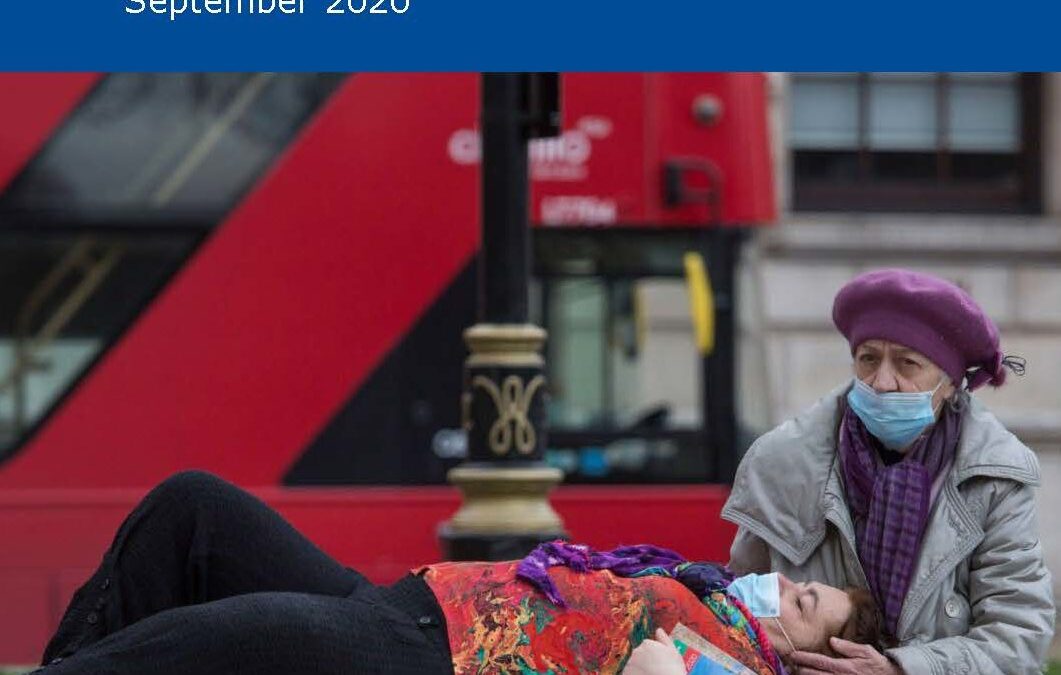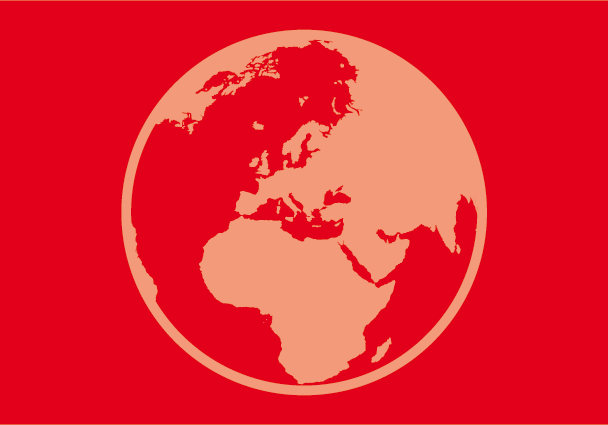
Sep 29, 2020 | Advocacy, Non-legal submissions
At the Human Rights Council, the ICJ and other NGOs highlighted with concern renewed attacks against the Council’s independent experts, aimed at interfering with their independence.
The oral statement was delivered by Amnesty International, in the general debate on human rights bodies, on on behalf of 14 NGOs. It read as follows:
“It is with great concern that we note the renewed attacks against the Special Procedures of this Council, through which certain states seek to interfere with their independence and impose political oversight over individual experts. While we welcome the outcome of the informal discussions, we would like to raise a few issues of concern.
As we noted in our letter to you Madame President, the states signatories of the letters rely on PRST 8/2 of 18 June 2008 on the Terms of office of special procedure mandate-holders, which was originally adopted in the specific context of Council discussions on the extension of the terms of mandate holders, and should not be regarded as a wider framework for assessing the performance of mandate holders. Furthermore, the groups of states appear to have ignored the existing Internal Advisory Procedure, instead proceeding directly to attempts to impose political oversight by this Council.
We also note with great concern that several of the signatory states launched wholly inappropriate attacks of a personal nature against Special Procedure mandate holders in the past.1
The allegations presented against the Special Rapporteur on extrajudicial, summary or arbitrary executions, in particular, seem little more than objecting to her being especially effective and proactive in doing exactly what this Council has tasked her to do, including monitoring and reporting on violations of the right to life and bringing these to the attention of the Council, and promoting respect for the right to life more generally.
We appreciate the efforts by the Coordination Committee to address broader issues related to the working methods of the Special Procedures, and welcome its willingness to work with the Special Rapporteur on the right to privacy on issues related to methodology and programming of the six outstanding country reports.
The independence of the Special Procedures is absolute in nature, and any attempts to erode that status threatens the credibility and integrity of this Council.
Thank you.”
Amnesty International
ARTICLE 19
Asian Forum for Human Rights and Development (FORUM-ASIA)
Center for Reproductive Rights
Child Rights Connect
CIVICUS: World Alliance for Citizen Participation
DefendDefenders (East and Horn of Africa Human Rights Defenders Project)
Geneva for Human Rights
International Commission of Jurists
International Federation for Human Rights (FIDH)
International Movement Against All Forms of Discrimination and Racism (IMADR)
International Service for Human Rights
Privacy International
Women’s International League for Peace and Freedom (WILPF)
1 Amnesty International and ISHR: HRC 37: Item 5: Human rights bodies and mechanisms, 14 March 2018, Index number: IOR 40/8032/2018, https://www.amnesty.org/en/documents/ior40/8032/2018/en/

Sep 24, 2020
The ICJ highlighted the key role of criminal justice systems in countering terrorism, and the need for a human-rights-based approach to victims of terrorism, at the UN Human Rights Council in Geneva.

Sep 15, 2020 | Advocacy, Non-legal submissions
At the UN Human Rights Council in Geneva, the ICJ has urged States to ensure human rights and avoid discriminatory impacts, and for businesses to respect their human rights responsibilities, in responding to the COVID-19 pandemic.
The oral statement, delivered in a general debate on the update of the High Commissioner for Human Rights, read as follows:
“In our latest report, Living Like People Who Die Slowly: The Need for Right to Health Compliant COVID-19 Responses,[1] the International Commission of Jurists (ICJ) calls on States to ensure that their individual and collective responses to the COVID-19 pandemic comply with international human rights law, including the right to health.
Any abuse of pandemic measures to repress human rights defenders, dissenting voices, or civil society more generally, is unacceptable. Respect for freedom of expression, including the right to information, is essential to effectively addressing the pandemic.
The particularly acute impact of COVID-19 on already-marginalized people heightens the importance of equal access to health facilities, goods and services. The report documents disproportionate impacts on non-citizens, older persons, women and girls, LGBT persons, persons deprived of their liberty, persons with disabilities, sex workers and healthcare workers.
Businesses, and particularly private actors in the healthcare sector must meet their responsibility to respect human rights. This will be crucial in the development, production and distribution of any COVID-19 vaccine.
Madame President, the ICJ emphasizes the continuing importance and applicability of the 1984 Siracusa Principles on the Limitation and Derogation Provisions in the International Covenant on Civil and Political Rights,[2] and the recognition in the WHO International Health Regulations that implementing measures must be fully consistent with human rights.”
[1] https://www.icj.org/icj-new-global-report-shows-that-the-right-to-health-must-be-central-to-state-responses-to-covid-19/ (1 September 2020).
[2] https://www.icj.org/siracusa-principles-on-the-limitation-and-derogation-provisions-in-the-international-covenant-on-civil-and-political-rights/ and UN Doc E/CN.4/1985/4, Annex.
The full range of materials produced by the ICJ concerning the COVID-19 pandemic can be accessed at: https://www.icj.org/human-rights-in-the-time-of-covid-19-front-and-centre/

Sep 1, 2020
En un nuevo informe (en inglés) publicado hoy, la CIJ llama a los Estados para que en sus respuestas a la emergencia de salud pública creada por el COVID-19 respeten el derecho internacional de los derechos humanos y el derecho a la salud.
El informe hace énfasis en el grave y discriminatorio impacto que la pandemia ha tenido en diferentes grupos que ya se encontraban en una situación de vulnerabilidad. De igual manera, el informe subraya la importancia que se garantice el acceso a establecimientos, bienes y servicios de salud, sin ningún tipo de discriminación.
El informe, titulado “Viviendo como personas que mueren lentamente: la necesidad de que las respuestas al COVID-19 estén conforme con el derecho a la salud”, documenta los efectos adversos sobre los derechos humanos que ha provocado la pandemia del COVID-19.
El título proviene de las palabras dichas por Mama Yuli, una mujer transgénero de Indonesia, quien afirmó que la pandemia había dejado a muchas mujeres transgénero de la tercera edad con la sensación que “vivían como personas que mueren lentamente”.
El informe subraya la necesidad de un enfoque de derechos humanos y de Estado de Derecho para hacer frente a la pandemia, lo que requiere que los Estados cooperen entre sí para responder a la actual crisis de salud, que por su naturaleza no conoce de fronteras.
“La pandemia del COVID-19 es una crisis de salud pública que representa una amenaza global inmensurable a los derechos humanos y al Estado de Derecho”, dijo Ian Seiderman, director legal y de política pública de la CIJ. “Pero lo que es crucial es que las respuestas de los Estados no solo sean inmediatas y efectivas al COVID-19 como emergencia de salud pública, sino también como una crisis de derechos humanos”, agregó Seiderman.
Tomando en consideración el trabajo previo que ha realizado la CIJ en materia del COVID-19, el informe detalla el impacto desproporcionado de la pandemia en los no ciudadanos, las personas mayores, las mujeres y niñas, la comunidad LGBT, las personas privadas de la libertad, las personas en situación de discapacidad, los trabajadores sexuales y los trabajadores de la salud.
El informe señala la necesidad de que se suministre información en materia de salud por parte de las autoridades estatales, en el contexto del COVID-19. El informe también analiza las medidas adoptadas por los Estados, las cuales, en muchas ocasiones, han restringido el derecho a la libertad de expresión, a la información y a la privacidad.
Por ejemplo, aunque “medidas de rastreo” (contracting tracing measures) pueden ser efectivas, estas medidas también deben respetar los derechos humanos. En adición, la información recolectada a través del rastreo no debe ser usada de manera inapropiada o como un instrumente de represión de individuos o de defensores de derechos humanos.
Por otra parte, reconociendo la interdependencia de todos los derechos humanos, el informe enfatiza en la necesidad de que los Estados aseguren el acceso a los “determinantes sociales de la salud”, como la vivienda, la alimentación y el agua, los cuales, a su vez, son derechos humanos internacionalmente reconocidos.
El informe también ofrece recomendaciones a los Estados que, de aplicarse, contribuirían a asegurar que el derecho a la salud y los derechos humanos sean respetados en las respuestas a la pandemia del COVID-19.
Al respecto, en el informe, la CIJ llama a los Estados para que sigan los lineamientos ofrecidos por los distintos órganos de los tratados de derechos humanos y los expertos independientes de Naciones Unidas sobre las mejores maneras de respetar los derechos humanos mientras adoptan medidas para hacer frente a la pandemia.
Sin duda, el sistema de derechos humanos ofrece directrices esenciales para los Estados, las cuales no estaban disponibles, por ejemplo, durante la pandemia de influenza de 1918, por la cual murieron alrededor de 50 millones de personas.
“Los estados deben acatar los llamados por un enfoque de derechos humanos y de Estado de Derechos en las respuestas al COVID-19. De no hacerlo, sin duda, resultará en la muerte y el sufrimiento muchas personas, lo que aún puede evitarse,” manifestó Seiderman.
El informe también llama la atención sobre la importancia del cumplimiento por parte de las empresas, particularmente las empresas privadas del sector salud, de sus obligaciones en materia de derechos humanos, incluyendo el derecho a la salud.
Este aspecto es crítico, por ejemplo, para asegurar el éxito de los esfuerzos combinados de los Estados y compañías privadas en el desarrollo y distribución de una vacuna contra el COVID-19.
El informe se encuentra disponible en inglés.
Contacto
Timothy Fish Hodgson, Asesor legal de la CIJ en derechos económicos sociales y culturales.
Correo electrónico: timothy.hodgson(a)icj.org
Teléfono: +27828719905

Sep 1, 2020 | News, Publications, Reports, Thematic reports
In a new report published today, the ICJ called on all States to ensure that their responses to the public health emergency brought on by the COVID-19 comply with the international human rights law and the right to health.
The report emphasized the particularly acute and discriminatory impact of the pandemic on already marginalized people and the need for access to health facilities, goods and services necessary to combat COVID-19 without discrimination.
The report Living Like People Who Die Slowly: The Need for Right to Health Compliant COVID-19 Responses documents the adverse human rights effects wrought by the COVID-19 pandemic.
The title comes from the words of Mama Yuli, an Indonesian transwoman, who has said that the pandemic left many elderly transwomen feeling like “they live like people who die slowly”.
The report emphasizes the need for a human rights and rule of law-based approach to the pandemic, with States working cooperatively to address a health crisis that by its nature knows no national boundaries.
“The COVID-19 pandemic is public health crisis that presents immeasurable threats to human rights and the rule of law globally, said Ian Seiderman, the ICJ’s Legal and Policy Director.
“But what is crucial is that States responses themselves not only respond immediately and effectively to COVID-19 as a public health emergency, but also as a human rights crisis”, he added.
Building on the ICJ’s earlier responses to COVID-19, the report details the disproportionate impact of COVID-19 on non-citizens, older persons, women and girls, LGBT persons, persons deprived of their liberty, persons with disabilities, sex workers and healthcare workers.
The report also emphasizes the need for the provision of health information by State authorities in the context of COVID-19 and scrutinizes measures taken by States which have often curbed the rights to freedom of expression, information and privacy.
For example, though “contracting tracing” measures may be effective they must also be human rights compliant and information gathered through such measures should not be used inappropriately or as an instrument of repression of individuals and human defenders.
Acknowledging the interconnectedness of all human rights, the report emphasizes the need for States to ensure provision and protection of access to the “social determinants of health” such as housing, food and water, themselves also internationally protected rights.
The report provides recommendations to States that may assist in ensuring right to health and human rights compliant responses to COVID-19.
The ICJ called on States to respect the various guidance offered by UN human rights treaty bodies and independent experts on how best to comply with their human rights obligations while responding to the pandemic.
The human rights system provides important guidance to States that was not available, for example, during the 1918 influenza pandemic, which ultimately resulted in an estimated 50 million deaths.
“States must heed these calls for a human rights and rule of law-based response to COVID-19, as failure to do so will certainly result in death and human suffering that can still be avoided,” said Seiderman.
The report also raises the importance of compliance by businesses, including particularly private actors in the healthcare sector, with their responsibility to respect human rights, including the right to health.
This will be critical, for example, in ensuring the success of combined efforts of States and private companies in the development and ultimate distribution of a COVID-19 vaccine.
Contact
Timothy Fish Hodgson, ICJ Legal Adviser on Economic, Social and Cultural Rights, t: +27828719905 e: timothy.hodgson@icj.org
Download
Universal-Global Health COVID-19 Exec Sum-Publications-Reports-Thematic Reports-2020-ENG (Executive Summary, in PDF)
Universal-Global Health COVID-19-Publications-Reports-Thematic Reports-2020-ENG (Full report, in PDF)
Myanmar-ICJ-Right-to-Health-Report-2021-BUR.pdf (Full report in Burmese)
Read also
Human Rights in the time of COVID-19: Front and Centre – ICJ news, articles, op-eds, legal blogs, videos
COVID-19 Symposium: COVID-19 Responses and State Obligations Concerning the Right to Health (Part 1)
COVID-19 Symposium: COVID-19 Responses and State Obligations Concerning the Right to Health (Part 2)
Watch









